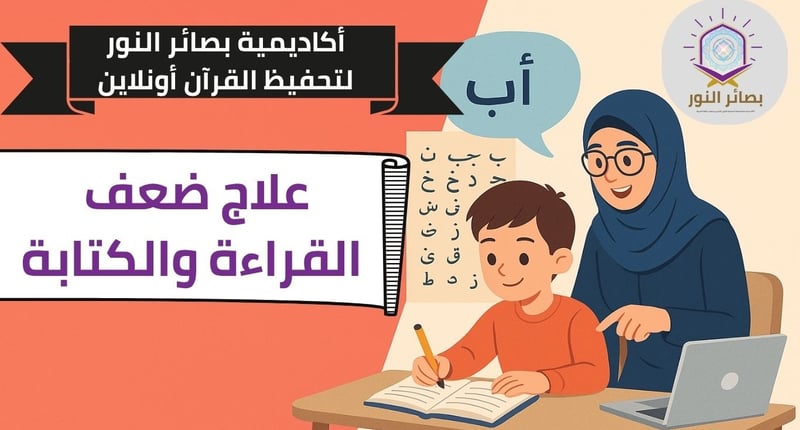Treating Reading and Writing Difficulties in Children: A Comprehensive Guide for Mothers and Teachers
Discover how to effectively treat reading and writing difficulties in children through practical, educational steps. A complete guide for mothers and teachers to help improve a child’s skills with ease and confidence.
Treating Reading and Writing Difficulties in Children: A Comprehensive Guide for Mothers and Teachers
Do you notice your child struggling with slow reading or confusion when writing? Reading and writing difficulties are common among school-aged children, but they are not the end of the road. In this article, we offer you a practical and educational guide on how to effectively support your child in overcoming these challenges.
What Are Reading and Writing Difficulties?
Reading and writing difficulties refer to challenges in pronouncing words, spelling, or forming sentences. They are not a sign of low intelligence, but may be caused by factors such as:
Delays in language or speech development
Hearing or vision problems
Lack of focus or attention difficulties
Inappropriate teaching methods that don’t suit the child’s learning style
Common Causes of Reading and Writing Difficulties in Children
Some of the most frequent causes include:
Late exposure to language (limited conversations or reading at home)
Relying on rote memorization without understanding in schools
Lack of a stimulating environment that encourages reading or expression
Failure to detect early hearing or vision issues
Emotional pressure or constant criticism that lowers a child's confidence
Steps to Treat Reading and Writing Difficulties in Children
1. Strong Phonics Foundation
Start by teaching your child phonemic awareness—help them identify and differentiate sounds in words.
Practical Examples:
Distinguish between similar sounds like “S” and “Sh” using visuals and sounds
Word-building games with letter cards
Reading simple two- or three-letter words
2. Set Daily Reading Time
Make reading a part of your child’s daily routine:
Choose engaging, age-appropriate stories
Read aloud together and make it fun
Ask simple questions to check comprehension
3. Gradual Writing Support
Begin with letters, then move on to words and short sentences. Use creative tools like:
Playdough for shaping letters
Coloring letter flashcards
Neat and clear handwriting practice books
4. Encourage, Don’t Punish
Praise every improvement, no matter how small
Avoid comparing your child to others
Use positive reinforcement like:
“I can see a big improvement in your writing!”
“Every time you write, you’re getting better!”
5. Seek Help from Specialized Academies
Some children may need professional educational support.
Basaer Al-Noor Academy offers therapeutic and educational programs for children with learning difficulties through:
Interactive and non-traditional methods
Personalized instruction tailored to each child’s level
Ongoing monitoring and regular assessments
When to Seek Professional Help
You should consider consulting a specialist if your child is 7 years old or older and:
Struggles with reading even basic words
Makes frequent spelling mistakes
Avoids reading and writing altogether
Has trouble understanding what they’ve read
In such cases, it’s best to contact an educational expert or learning difficulties specialist.
Conclusion
Helping your child overcome reading and writing difficulties takes patience, encouragement, and a positive environment.
Start with simple daily steps, and don’t expect immediate results. Every child is unique and needs someone who believes in them.
Looking for a Strong Learning Foundation for Your Child?
Basaer Al-Noor Academy offers foundational reading and writing programs for children—designed to be fun, interactive, and based on proven educational methods.
📞 Book a free consultation now through our website or contact us directly via WhatsApp:
[https://wa.me/966574196914?text=]


Contact
Contact
+201004359456
+966574196914
© 2025. All rights reserved.
